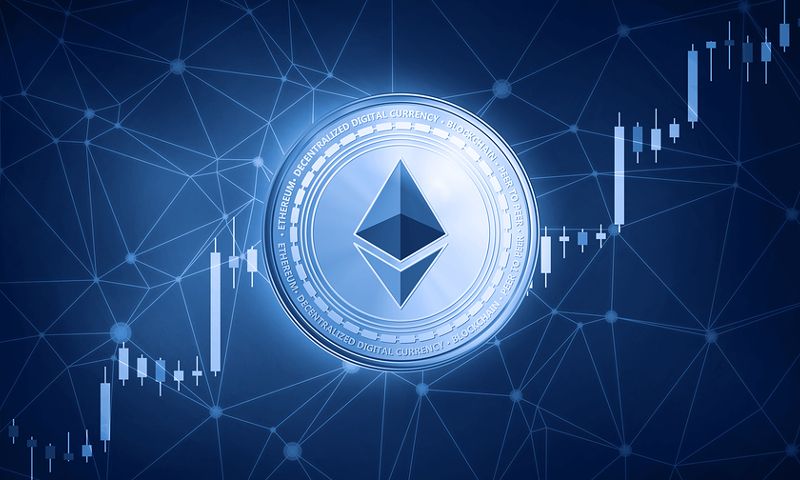Etherium - definition and meaning
Ethereum refers to either the cryptocurrency 'Ether' or a decentralised platform on which smart contracts are run. Smart contracts are applications that run without the risk of third-party intervention, censorship or downtime. Fraud is not possible with the platform, so says its creator.
The Ethereum Wallet is the gateway to a decentralised platform that runs applications that allow people to store and protect ether. Ether is a cryptocurrency, i.e. a digital currency. Digital currencies are currencies that exist only in electronic form .
Cryptocurrency experts say Ethereum and Bitcoin are pioneering blockchain and distributed ledger technology platforms. Bitcoin was the first cryptocurrency; it entered the market in 2009.
According to Ethereum.org:
"Ethereum is a decentralised platform that runs smart contracts : applications that work exactly as programmed, without any possibility of downtime, censorship, fraud or third-party interference.
"These applications run on a purpose-built blockchain, an extremely powerful shared global infrastructure that can move value and represent ownership."
Julian Goldie, who trades cryptocurrency for a living , describes Ethereum as a supercomputer.
Ethereum is a cryptocurrency
Ethereum is a cryptocurrency that has been around since 2015. Cryptocurrencies first appeared on the market in 2009 but now it is Ethereum casinos that have become popular . Most people are already taking advantage of this particular variation of making money and having fun . So, what is cryptocurrency?
Cryptocurrencies are a type of digital money. In other words, money that only exists electronically. Their creators have made them ultra-secure and, in most cases, also anonymous.
The word is a combination of the words "crypto" and "currency".
Crypto means cryptography, i.e. the art of deciphering and creating codes.
Currency is a type of money that a country uses. Currency can also mean banknotes and coins, especially when they are part of the money supply.
The pound sterling, the euro, the Swiss franc, the yen, the dollar, the rupee and the yuan, for example, are currencies.
The creators of cryptocurrencies have used encryption methods, i.e. complex codes, to regulate the generation of monetary units. Their encryption methods also verify the transfer of funds.
Ether and Ethereum
Ethereum is the platform that generates the cryptocurrency Ether . However, people usually say 'Etherium' when talking about cryptocurrency.
Wikipedia says the following about the platform and cryptocurrency :
"Ether is a cryptocurrency whose blockchain is generated by the Ethereum platform. Ether can be transferred between accounts and used to compensate participants' mining nodes for calculations performed."
Therefore, the issuance of new units of Ether that are used to compensate participants' mining nodes is called Ethereum mining .
What is blockchain?
A blockchain ensures the validity of each cryptocurrency chain. It is an expandable list of records or blocks that are secured and linked through cryptography.
Each block usually has a hash pointer as a reference to the block that precedes it. It also contains transaction information and a timestamp.
"Blockchain refers to a type of data structure that allows transactions to be identified and tracked digitally and this information to be exchanged across a distributed network of computers, creating in a sense a distributed trust network.
"The distributed ledger technology offered by blockchain provides a transparent and secure means to track ownership and transfer assets."
Cryptocurrency mining refers to the verification process that "miners" do. They add transaction data to a block and then attach it to the blockchain.
Smart contracts
Blockchain stores what we call smart contracts, which are strings of computer code. These strings of code allow the digital contract to work automatically.
In other words, smart contracts are completely self-executing. The system requires no intermediaries, such as notaries or lawyers.
The history of Etherium
Vitalik Buterin, a Russian-Canadian programmer and writer, first proposed Ethereum in 2013. Thanks to an online sale, Buterin was able to develop the system between July and August 2014.
The system went live in July 2015 with 11.9 million coins. These coins now make up about thirteen per cent of the total coins in circulation.
Buterin chose the name after browsing Wikipedia articles on science fiction and the elements. When he found the name, he noted:
"I knew immediately that I liked it better than all the other alternatives I had seen; I suppose it was the fact that it sounded beautiful, and it had the word 'ether' in it, referring to the hypothetical invisible medium that pervades the universe and allows light to travel."
Read also How do I buy BTC/ETH through a bank account?
share £